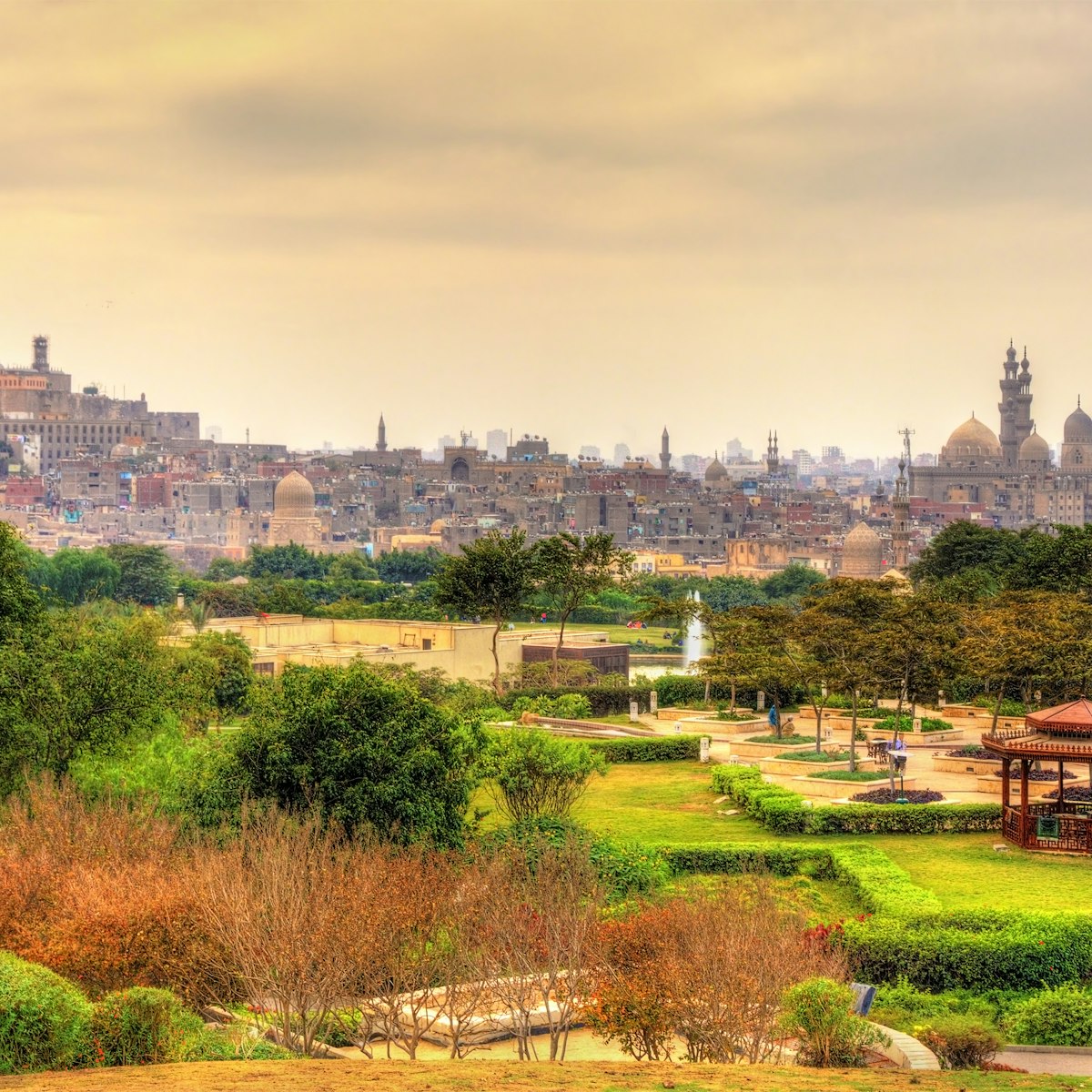Just south of the Coptic Museum on Sharia Mar Girgis (the main road parallel with the metro), a stone facade inscribed with Coptic and Arabic marks the entrance to the 9th-century (some say 7th-century) Hanging Church, so named because it is suspended over the Water Gate of Roman Babylon. With its three barrel-vaulted, wood-roofed aisles, the interior of the church feels like an upturned ark, resting on 13 elegant pillars representing Christ and his apostles.
Steep stairs lead to a 19th-century facade topped by twin bell towers. In a small inner courtyard, vendors sell taped liturgies and videos of the Coptic pope, Shenouda III. The interior feels very similar to that of a mosque. The ebony- and ivory-inlaid screens hiding the altar show the same intricate geometric designs that are distinguishable from Islamic patterns only by the tiny crosses worked on them. One of the columns is darker than the rest; it is believed to represent Judas.
The church has 110 icons, including a series describing the life and torture of St George and the life of St John the Baptist, and a very sacred painting of Virgin Mary known as the Coptic 'Mona Lisa'. In the baptistery, off to the right, a panel has been cut out of the floor to reveal the Water Gate below. Still in use, the church is equally crowded with tourists and parishioners who come to pray over a collection of saints’ relics and an icon of Mary.







